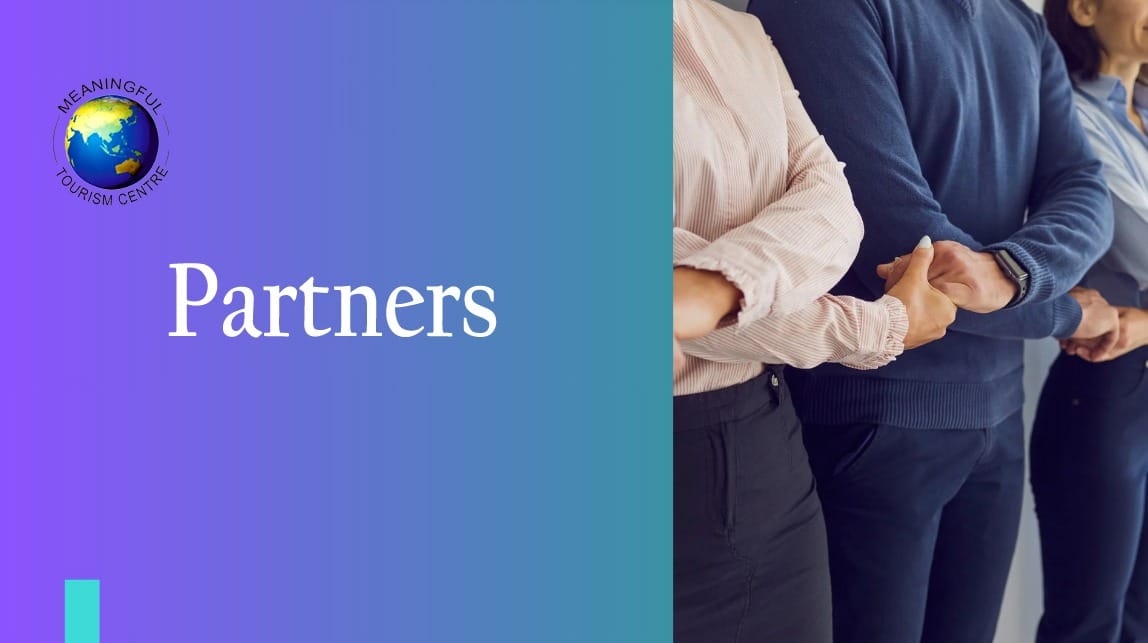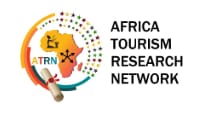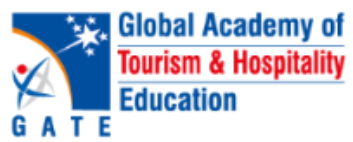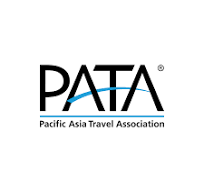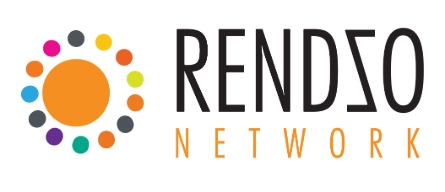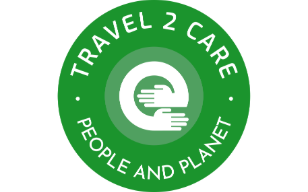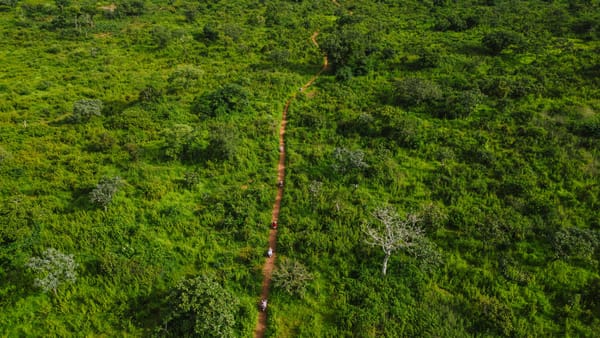Meaningful Tourism moving further steps mainstream

Dear reader,
your humble editor is back from an exciting visit to Guangzhou and the GITF Guangzhou International Travel Fair 2025. The “other half” of the Meaningful Tourism Centre, the COTRI China Outbound Tourism Research Institute, organised again successfully the conference accompanying the fair. This year, however, for the first time a special Meaningful Tourism Forum was added. MTC had the honour to welcome in person Peter Semone, the Chairman of PATA Pacific Asia Travel Association, as a keynote speaker explaining why PATA choose as their new Vision statement “A Meaningful Pacific-Asia Tourism Economy”. More details about the event you will find in the MTC News section below.
A second article in the MTC News below covers the other happy event just a few days ago: The Webinar MEANINGFUL TOURISM ECONOMY – A VISION FOR A SUSTAINABLE FUTURE was organised by MTC in cooperation with the Institute of Tourism, with more than 500 persons from all parts of the global participating live online on Zoom, Facebook and Youtube. Again, your humble editor and PATA Chairman Peter Semone gave presentations, followed by three of the certified trainers for the Meaningful Tourism Transformational Game Workshop from the Middle East, Europe and Africa. At the end of the webinar, the audience had the opportunity to ask questions to the experts. See the article below for more details.
Last week we said that for everybody supporting sustainable development, the UN SDG Sustainable Development Goals and the ESG Environmental, Social, and Governance framework some good news came from the Vatican, as Leo XIV, the new pope of the Catholic church, has confirmed in his first appearances to be a strong defender of the interests of less privileged people and a supporter of the fight against Climate Change.
This week more good news can be reported. The next CEO of the UN Tourism (formerly – and maybe again in the future – known as UNWTO) will not be the current one, who followed rather a neoliberal path during his two terms as leader and has been widely criticised for the lack of leadership during the pandemic. Instead at the end of this month it is very likely that for the first time a woman will be elected, coming from a non-Western country. The two favourites are Shaikha Al Nowais from the UAE and Gloria Guevara, former Tourism Minister of Mexico and current leader of WTTC. Both stand for an approach which will go back to the pro-poor and pro-development policies of Taleb Rifai, who preceded the current CEO.
On May 30, 2025, the Executive Council of UN Tourism will nominate a candidate for Secretary-General for the next four years.
The selected nominee, requiring support from at least 18 of the Council's 35 members, will be recommended to the UN Tourism General Assembly, scheduled to meet in Riyadh in November. The GA normally is following the recommendation.
The Executive Council—UN Tourism’s main decision-making body between General Assemblies—includes currently the following 35 member countries: Argentina, Armenia, Azerbaijan, Bahrain, Brazil, Bulgaria, Cape Verde, China, Colombia, Croatia, Czech Republic, DRC, Dominican Republic, Georgia, Ghana, Greece, India, Indonesia, Iran, Italy, Jamaica, Japan, Lithuania, Morocco, Mozambique, Namibia, Nigeria, South Korea, Rwanda, Saudi Arabia, South Africa, Spain, Tanzania, UAE, and Zambia.
The three other - male - candidates are Habib Ammar (Tunisia), a senior civil servant, Muhammad Adam (Ghana), a former ambassador to Spain, and Harry Theoharis (Greece), who served as Greece’s Minister of Tourism from 2019 to 2021. None of them has a level of knowledge or background in tourism and hospitality compared to the two female candidates, especially Gloria Guevara.
You can read about the results in two weeks here in the Meaningful Tourism Weekly.
As always, all the best wishes from Prof. Dr. Wolfgang Georg Arlt and the entire Meaningful Tourism Weekly team!

Editor: Prof. Dr. Wolfgang Georg Arlt

MEANINGFUL TOURISM FORUM AT GITF GUANGZHOU INTERNATIONAL TRAVEL FAIR 2025
The GITF Guangzhou International Travel Fair is the oldest tourism fair in China, covering domestic and outbound tourism since more than 30 years. South China is the source market for the majority of Chinese outbound travellers, however it is paid less attention by most National Tourism Organisations compared to Beijing and Shanghai. The “other half” of the Meaningful Tourism Centre, the COTRI China Outbound Tourism Research Institute, is organising since many years the conference accompanying the fair. This year, the whole fair was organised under the motto of “Meaningful Tourism – Enduring Connections”.

On the afternoon of the second day of the fair, a special Meaningful Tourism Forum was held in the stage area inside the international hall of GITF. The Forum was held in English, however a simultaneous translation was provided by the organisers of GITF, who supported the event in a very professional way.
The Forum started with a brief introduction into the concept of Meaningful Tourism by its founder and Executive Director of the MTC Prof. Dr. Wolfgang Georg Arlt. It was pointed out that also for the tourism development in China as well as for service providers and destinations serving Chinese visitors it becomes increasingly important to switch to a Meaningful Tourism approach. In China working in tourism and hospitality has become perceived even less attractive after the pandemic, as could be experienced even in the beautiful Five-Star hotel adjacent to the fair, in which some of the events took place and most exhibitors stayed. The staff is diligent and friendly, but untrained and in many cases obviously new to the job, resulting in bookings not found in the reservation system, tablets with drink crashing to the ground etc. Outbound tourists from China are also getting more and more conscious about ecological consequences of their travel and start to prefer services communicating their commitment to sustainable practices.

The introduction was followed by the Chairman of PATA, Peter Semone, who explained why PATA choose as its Vision statement the establishment of a Meaningful Pacific Asia Tourism Economy. He warned that tourism might face the fate of the Dodo, a bird on Mauritius which became extinct after being hunted by Dutch colonizers in the 17th century, providing the base for the saying “as dead as a Dodo”. Tourism as a mass phenomenon is not very old and its further existence cannot be taken for granted. Meaningful Tourism has been chosen by PATA as a holistic approach which will help to keep tourism alive.

The main part of the Forum followed with a roundtable talk chaired by Prof. Dr. Arlt, with Peter Semone and two additional guests participating: Catherine Germier (CEO Millennium Destinations, former CEO Destination Mekong and Certified Meaningful Tourism Transformational Game Workshop trainer for Cambodia and Laos) and Anita Chan (CEO Compass Edge). The panelists shared their insights into the question of how to use the Meaningful Tourism tool to increase benefits and satisfaction especially for China’s outbound tourism in the Asia-Pacific region. Catherine provided experiences especially from the destinations along the Mekong River, while Anita talked about the efforts and challenges the hospitality sector in the region is facing.

The final part was given to the audience and a few questions answered mostly regarding the workshop and how it can be provided in different places in the future.
More photos of GITF and especially the Meaningful Tourism Forum are available online:
https://live.photoplus.cn/live/54165576?#/list
https://live.photoplus.cn/live/pc/2963791/#/live
500 participants from all corners of the world watch the Webinar
MEANINGFUL TOURISM ECONOMY – A VISION FOR A SUSTAINABLE FUTURE
Organised by Meaningful Tourism Centre and the Institute of Tourism, the webinar was broadcasted live on Zoom, Youtube and Facebook on 20 th May, 2025, starting at 9 a.m. GMT.
The webinar was meant to introduce Meaningful Tourism is a holistic approach and a practical tool to help destinations, organisations and companies to adapt to the changes in demand, the growing influence of new technologies and the results of Climate Change. It showed that Meaningful Tourism is needed to survive and thrive in a sustainable and profitable way.
Another reason for the webinar was to celebrate the fact that Meaningful Tourism was recently incorporated into the new Vision statement of PATA Pacific Asia Travel Association as A Meaningful Pacific Asia Tourism Economy during the PATA Annual Summit in Istanbul with 100% of the votes.
The webinar started with a brief introduction into the concept of Meaningful Tourism by its founder and Executive Director of the MTC Prof. Dr. Wolfgang Georg Arlt. In the same sequence as a few days earlier in Guangzhou, it was followed by the Chairman of PATA, Peter Semone, who explained by PATA choose as its Vision statement the establishment of a Meaningful Pacific Asia Tourism Economy. He also commented positively on the proposal by some followers to call Meaningful Tourism a “movement”.
There are now more than 25 certified trainers for the Meaningful Tourism Transformational Game Workshop. Three of them discussed Meaningful Tourism as a tool for the development of sustainable tourism. For the Middle East, Dr. Ali Akaak of UTAS in Oman showed how the region is trying to avoid mistakes done earlier by other regions of the world. Mayte Redondo of Travel2care in Spain
concentrated on some of such hotspots of overtourism and unhappy host communities in Europe and the urgent need for change to support a sustainable development of tourism in the EU and the rest of Europe.
The last speaker looked at the fast-growing tourism in Africa and could provide some positive Best Practice Examples to end the webinar on a positive meaningful note. Emmanuel Frimpong, founder of the Africa Tourism Research Network, based in Ghana, will also be the main organiser of the next webinar, which will concentrate on Meaningful Tourism in Africa. For more details look at the Events
section below.
Finally, a few questions could be answered including the list of scientific publications already available about Meaningful Tourism. It could also be confirmed that participants will be provided free of charge with a participation certificate on demand.
For those who missed the Meaningful Tourism Economy Webinar, it is available online as a video at the website of the Institute of Tourism: https://institutetourism.com/meaningful-tourism-economy/
Next webinars about Meaningful Tourism:
June 19 th , 2025: Meaningful Tourism in Africa
July (date not yet fixed), 2025: PATA Webinar on Meaningful Tourism
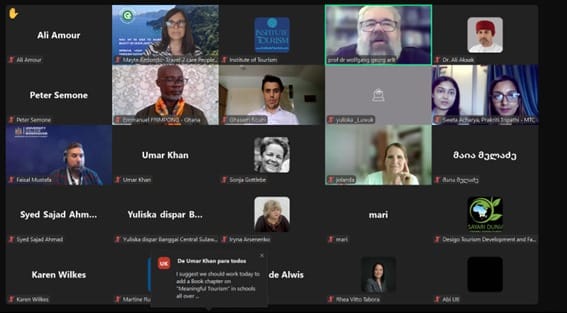

Meet the Trainers for the Meaningful Tourism Transformative Game Workshop:

Mayte Redondo Castuera is a sustainable tourism expert with over 30 years of experience. She is the founder of Travel 2 Care People and Planet and a trainer for the Meaningful Tourism Game workshop. As a certified Travelife Coach and Auditor, she supports tour operators in adopting responsible practices. She also collaborates with Green Destinations and is a Good Travel Guide Ambassador. Mayte holds a Master’s in Digital Marketing & E-Commerce and a degree in Tourism Management. Her work blends deep industry knowledge with a strong commitment to people, the planet, and purpose-driven travel.
Meaningful Tourism Weekly asked Mayte about the situation of tourism in Spain the role Meaningful Tourism paradigm can play to support the development in this country.
Her answer:
Reframing tourism in Barcelona: How the Meaningful Tourism Centre can support its development?
Tourism in Barcelona, and more broadly in Spain, is rebounding strongly post-pandemic. Visitor numbers are rising rapidly, but so are the pressures: overcrowding, resident dissatisfaction, gentrification, environmental degradation, and unsustainable visitor flows.
Iconic attractions like the Sagrada Família, Park Güell, and Las Ramblas draw millions annually, but the saturation of tourists in central districts (particularly Ciutat Vella, Eixample, and Barceloneta) has led to rising tensions between visitors and residents. As professionals in the tourism industry, we know that success comes with complexity.
The city has already taken regulatory steps to manage growth, such as restricting short-term rentals and controlling hotel development through the PEUAT plan (Special Urban Plan for Tourist Accommodation). Yet these measures are often reactive, fragmented, or politically contested. What’s missing is a coordinated, strategic framework that aligns the needs of all The Meaningful Tourism paradigm is built around one core principle: tourism must generate measurable benefits and satisfaction for all six main stakeholder groups (travellers, host communities, employees, service providers, government bodies, and the environment). MTC operationalizes this principle through practical tools, expert training, and clear KPIs. Let’s see how:
1. Stakeholder-centered workshops to build consensus and strategy
MTC’s Transformational Game Workshop is a structured, one-day offline session where participants assume roles across the six stakeholder groups. It turns fragmented interests into actionable collaboration and building an strategy.
Example for Barcelona:
A session involving local tourism boards, hotel associations, resident groups from Ciutat Vella, tourism employees, and environmental NGOs could jointly define KPIs like:
- “Reduce peak-season visitor numbers in high-impact zones by 25% via experience diversification.”
- “Increase resident satisfaction with tourism management by 15% in annual surveys.”
2. SMART KPIs to drive real change
MTC supports destinations in developing SMART (Specific, Measurable, Achievable, Relevant, Time-bound) KPIs. These metrics allow professionals to manage tourism impact the same way businesses manage performance, with clarity and data.
Tourism business example:
A hotel group could adopt the KPI “80% staff retention over 12 months through improved contracts and training,” tied to incentive schemes. Local authorities might target “30% of all guided tours led by certified local guides,” to redistribute economic benefit.
3. Ongoing strategic support
Beyond training, MTC provides expert consultancy for mid- to long-term implementation. Whether it's a follow-up strategy session, policy co-design, or continuous KPI refinement, MTC ensures the plan doesn’t stay on paper.
Example:
After a workshop, a follow-up pilot program in the Gràcia or Poblesec districts could promote cultural tourism managed by local associations, lightening pressure on central Barcelona while empowering neighbourhoods economically and socially.
Host Communities: By involving residents in co-designing tourism experiences, such as neighbourhood-led cultural tours or locally hosted events, the city can foster a sense of ownership and reduce resentment. For example, the Sant Andreu district could develop initiatives showcasing local traditions, food, and crafts, offering a richer alternative to the heavily trafficked Gothic Quarter.
4. Tools for ESG and SDG integration
MTC’s KPI framework aligns with ESG (Environmental, Social, Governance) and SDG (Sustainable Development Goals) reporting. This is crucial for public sector transparency and for private operators seeking responsible investment and brand positioning.
Example:
A DMO or tourism board could use MTC KPIs for annual sustainability reporting, enhancing trust with both residents and international partners.
Barcelona doesn't need more tourism, it needs better tourism. The Meaningful Tourism Centre equips the city with the tools, training, and strategic structure to make tourism more inclusive, transparent, and beneficial for all. By adopting this paradigm, Barcelona can lead a new era of regenerative, stakeholder-driven tourism.
Trainers Around the World
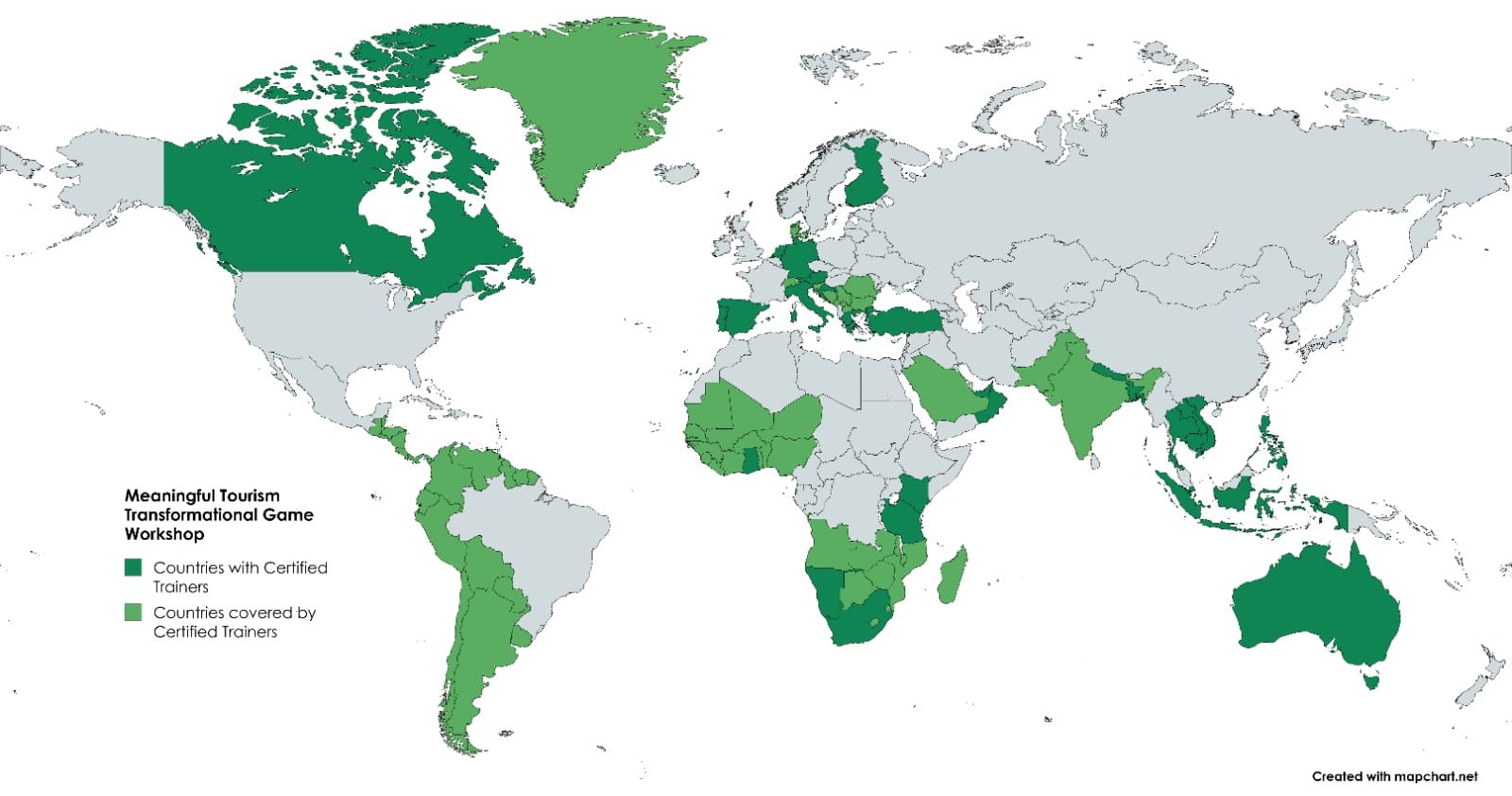
MTC is happy to invite more persons to become certified trainers and offering Meaningful Tourism Transformational Game Workshops in countries or regions not yet covered. If you have experience as a trainer and interest to support sustainable tourism, please contact us.

LEUCHTENBURG CASTLE SHINING INTO THE REGION
Integrating Cultural Heritage with Sustainable Tourism
The Leuchtenburg Foundation has masterfully restored and revitalized the 800-year-old “Shining Castle,” transforming it into a cultural hub that honors both historical preservation and sustainability. Originally a noble residence and later a prison and hostel, the castle now houses a museum focused on porcelain—a nod to the region’s deep roots in porcelain production. The Foundation’s efforts to restore medieval architecture while integrating eco-conscious practices have made Leuchtenburg a model for heritage-based sustainable tourism. The surrounding natural landscapes, including vineyards, meadows, and orchids, are protected as part of this holistic approach, encouraging eco-tourism and cultural appreciation through hiking and guided exploration.
Community Engagement and International Outreach
The Foundation’s operations are deeply embedded in the local community, with employees actively volunteering for the Thuringian Porcelain Route and regional tourism associations. Their involvement fosters strong regional identity and collaboration. Yet, the Foundation also embraces a global vision, especially through targeted initiatives aimed at the Chinese tourist market—the historical origin of porcelain. By offering Chinese-language exhibitions, signage, and even staff learning Mandarin, Leuchtenburg ensures a high-quality visitor experience for international guests. This dual commitment to local roots and global engagement led to the CTW Chinese Tourist Welcome Award in 2019.
Accessibility, Eco-Certifications, and Staff Involvement
Leuchtenburg stands out as the only fully accessible hilltop castle in Germany, making it inclusive for visitors of all ages and abilities. The Foundation's mission goes beyond tourism—it's a lived commitment. Employees engage in regular team-building, sports, and training activities, reflecting a strong organizational culture. Their dedication has earned the Foundation several awards, including the Thuringian Energy Efficiency Prize (for its wood chip-based heating system), the Museum Seal of the Thuringian Museum Association, and the Fair Family and Travel for All Seals. Organic practices are also a cornerstone: from Leuchtenburg-branded wine and honey to herb gardens used in the restaurant, the Foundation exemplifies how sustainability can be integrated into every facet of a heritage site.




For more information on the latest Meaningful Tourism news, we recommend looking at the following information from our partners and colleagues:
TRAVELLERS
Closed for Tourism? Foreign Visitors Rethink U.S. Trips Amid Unwelcoming Policies

Picture: Source - Meaningful Tourism Weekly
In 2025, international travel spending in the United States is projected to decline by 7%, amounting to a $12.5 billion reduction, as reported by the World Travel and Tourism Council (WTTC).
This downturn is attributed to a combination of factors including the strong U.S. dollar, which makes American travel costlier, and political concerns related to policies under President Donald Trump's administration. These issues have led to diminishing interest from international tourists, who are deterred by strict entry regulations, negative perceptions, and border entry concerns.
Foreign travel spending in US to decline 7% in 2025 – Reuters
HOST COMMUNITIES
Indigenous Limbu Community Resists Cable Car Project in Sacred Forests of Eastern Nepal
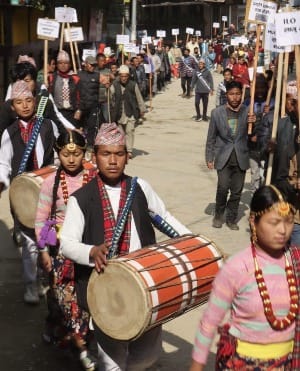
Picture: Indigenous Limbu protest / Taplejung
In eastern Nepal's Taplejung district, the Indigenous Limbu community is fervently opposing a $22 million cable car project intended to transport pilgrims to the Pathibhara Devi temple.
Known to the Limbu as Mukkumlung, or “stone of power,” this site holds profound spiritual significance, deeply rooted in their Mundhum oral traditions. For the local community, the project represents a threat not only to sacred lands but to their cultural integrity, ignored in a flawed environmental review process.
Read the full article at Mogambay.
EMPLOYEES
Urgent Need to Upgrade Vietnam’s Tourism Workforce

Picture: Tourism workers in Vietnam / Source: Meaningful Tourism Weekly
Vietnam's tourism industry is grappling with a significant workforce shortage, with estimates indicating a need for approximately 40,000 new workers annually. However, only about 20,000 are currently being supplied, and a mere 43% of these possess the necessary qualifications.
This gap underscores the urgent need for high-quality, hands-on training programs to equip employees with practical skills and competencies required in the dynamic tourism sector.
Read the full article at Voice of Vietnam.
COMPANIES
A Seaside Holiday for Every Child, UK

Picture: Derbyshire Children’s Holiday Centre / Source: Meaningful Tourism Weekly
In a heartwarming initiative, a tour company has partnered with the Derbyshire Children’s Holiday Centre (DCHC) in Skegness to provide seaside holidays for children who might not otherwise have the opportunity. This collaboration underscores the pivotal role of travel facilitators in making tourism accessible to all, especially the younger demographic from disadvantaged backgrounds.
GOVERNMENTS
Thailand's 2025 Tourism Strategy for the Future

Picture: Thailand's tourism strategy announcement / Source: Pattaya Mail
Thailand's Ministry of Tourism and Sports has unveiled a comprehensive five-year strategy aimed at transforming the nation's tourism sector to be more sustainable, inclusive, and resilient amid global uncertainties.
This initiative is particularly significant for travelers, as it promises enriched experiences that align with evolving preferences for meaningful and responsible tourism.
Read the full article at Pattayamail.
ENVIRONMENT
Birdwatching: Sustainable Tourism & Environmental Impact

Picture: Birdwatching activity / Source: BigCommerce
A recent study by the Indian Institute of Management (IIM) Lucknow, published in Tourism Recreation Research, highlights how birdwatching can be a powerful driver of sustainable tourism and promote environmentally responsible behavior among tourists.
Using the Stimulus-Organism-Response (SOR) framework, researchers surveyed over 300 birdwatchers to understand how immersive nature experiences influence their attitudes and actions. The study reveals that high-quality birdwatching experiences—characterized by knowledgeable guides, informative interpretation, and excellent service—significantly motivate tourists to adopt eco-friendly behaviors.
Read the full article at Rediff.

Meaningful Tourism in Africa Webinar.
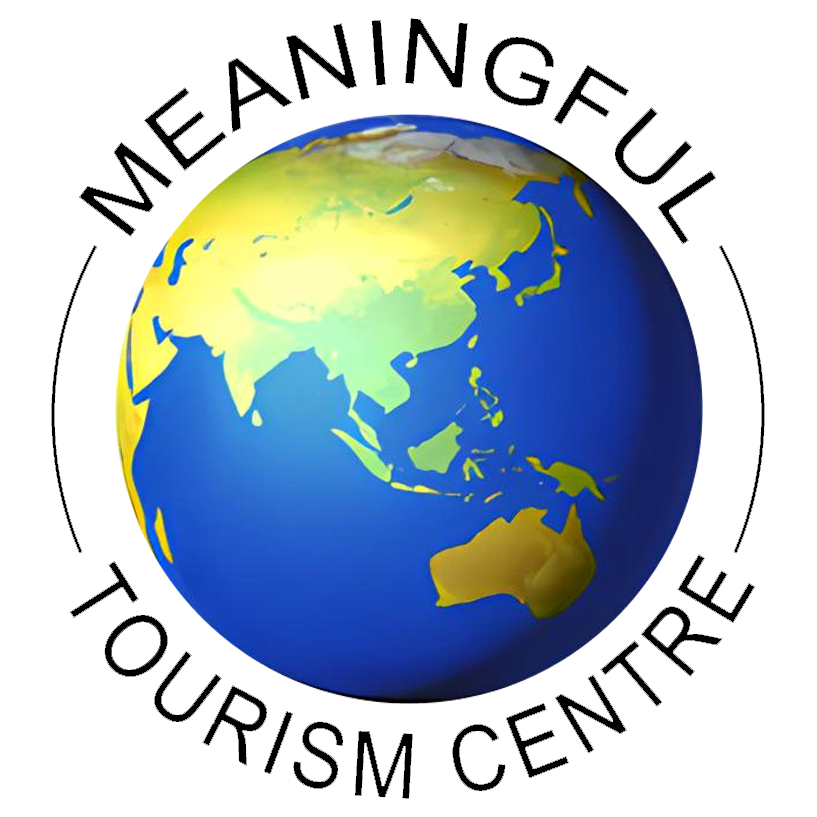
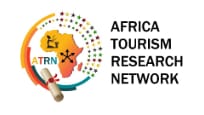
Webinar: Tourism Development in Africa
Date: June 19th, 2025 – JUNETEENTH
JUNETEENTH marks the day in 1865 when slavery officially ended in the United States. This webinar will honor that legacy by reflecting on tourism development in Africa—its achievements, challenges, and the path forward.
The Meaningful Tourism approach will be presented as a tool to help avoid mistakes and harm caused by unsustainable tourism in other parts of the world. Speakers will share insights and Best Practice Examples to guide meaningful progress.
Organized by the Meaningful Tourism Centre and the African Tourism Research Network, the webinar invites tourism professionals, researchers, and changemakers to join the conversation.
Meaningful Tourism Weekly is published every Thursday by the MTC Meaningful Tourism Centre (London and Kathmandu).
Each Meaningful Tourism Weekly includes the Meaningful Tourism Weekly Editorial, news about MTC activities, a Best Practice example, a portrait of a MTC-certified trainer, news about upcoming events and occasionally additional op-ed pieces provided by guest authors.
Furthermore, carefully selected news items including videos and podcasts with a link to the original source are added, sorted according to the six main stakeholders of tourism and hospitality, as defined by the Meaningful Tourism paradigm: Traveller/Guests, Host community, employees in tourism and hospitality service providers, service providing companies, governments and the environment.
Subscription to Meaningful Tourism Weekly is free, there are no advertisements. Names and other details of the subscribers are not shared with anybody.
Sponsorship options are available.
If you are interested in the work of the Meaningful Tourism Centre, providing trainings, market research, product adaptation, consulting services, conferences, strategy development and marketing, visit our website www.meaningfultourismcentre.org or contact us using info@meaningfultourismcentre.org.
